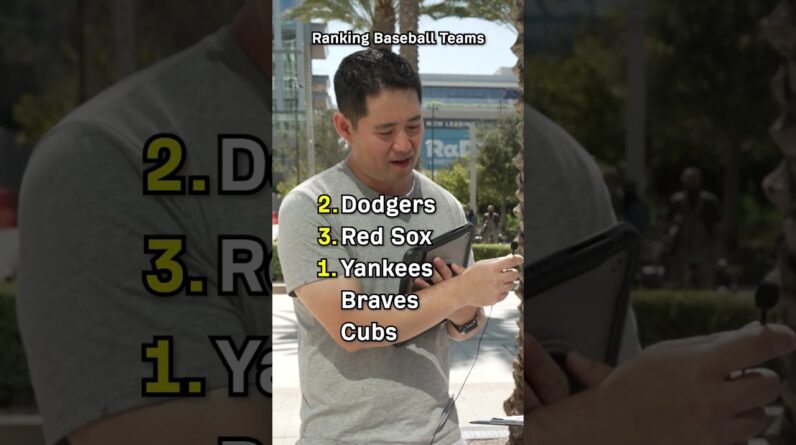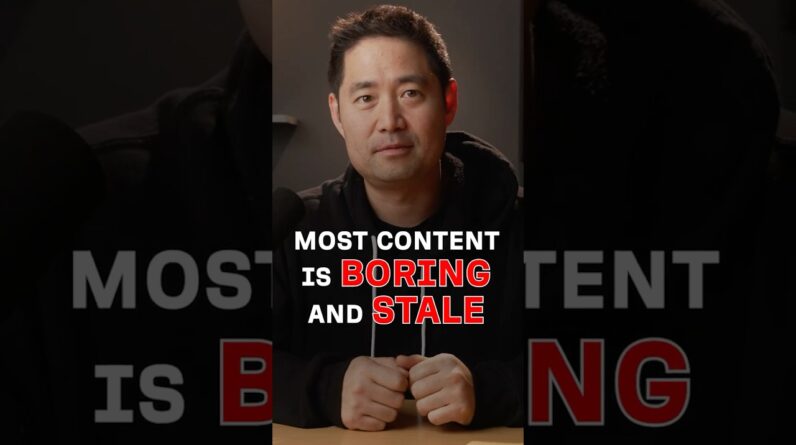
Curious about how search engines determine the ranking of websites? Look no further! This article unravels the mystery behind the algorithms that dictate the order in which websites appear in search engine results. From examining keywords and content relevance to evaluating user experience and backlink profiles, you’ll discover the intricate method search engines employ to deliver the most relevant and valuable results to users like you. So, let’s dive into the fascinating world of website ranking and uncover the secrets behind search engine algorithms!
Understanding Search Engine Ranking
Overview of search engine ranking
When you search for something on a search engine like Google, have you ever wondered how certain websites appear at the top of the search results? This is where the concept of search engine ranking comes into play. Search engine ranking refers to the position of a website in the search engine’s results, based on its relevance to the search query. Search engines aim to provide the most relevant and useful results to users, which is why understanding search engine ranking is crucial for website owners and digital marketers.
Importance of search engine ranking
Search engine ranking plays a vital role in the success of a website. Higher search engine rankings translate into increased visibility, more organic traffic, and ultimately, more potential customers or readers. In today’s competitive online landscape, appearing on the first page of search results is crucial, as most users do not venture beyond the first few results. Therefore, having a good understanding of search engine ranking factors and implementing effective strategies is key to optimize your website’s performance and achieve better visibility online.
Relevance and Authority
Relevance of website content
One of the primary factors that search engines consider in ranking websites is the relevance of their content to the user’s search query. Search engines analyze the content on webpages and evaluate its alignment with the keywords used in the search query. It is essential to create high-quality, informative, and relevant content that caters to the needs and interests of your target audience. By optimizing your website’s content, you increase the chances of being ranked higher in search engine results.
Keywords and SEO optimization
Keywords are the words or phrases that users enter into search engines to find specific information. By conducting keyword research, you can identify the most relevant and frequently searched keywords in your industry. Incorporating these keywords strategically throughout your website’s content, titles, headings, and meta tags can help search engines understand the relevance of your website to specific search queries. However, it is essential to strike a balance and avoid over-optimizing your content, as search engines may penalize websites for keyword stuffing.
Meta tags and descriptions
Meta tags and descriptions provide search engines with additional information about your website’s content and purpose. The meta title appears as the clickable headline in search engine results, while the meta description provides a brief summary of the webpage’s content. Optimizing these meta tags with relevant keywords and compelling descriptions can improve your website’s visibility and click-through rates in search engine results.
Inbound and outbound links
Inbound and outbound links play a crucial role in search engine ranking. Inbound links, also known as backlinks, are links from other websites that direct users to your website. Search engines view these links as indicators of your website’s authority and credibility. Having a diverse range of high-quality inbound links can significantly improve your website’s search engine ranking. On the other hand, outbound links, which direct users from your website to other webpages, can also contribute to your website’s authority and relevancy when used appropriately.
Domain authority
Domain authority is a metric that indicates the credibility and reputation of a website in the eyes of search engines. It is determined by various factors, including the number and quality of backlinks, the age of the domain, and the overall relevance and trustworthiness of the website’s content. Websites with higher domain authority are more likely to rank higher in search engine results, as they are considered more trustworthy and valuable sources of information.
Page authority
Similar to domain authority, page authority refers to the credibility and relevance of a specific webpage within a website. Each webpage on your website has its own page authority, influenced by factors such as backlinks, content quality, and user engagement. By optimizing individual webpages and increasing their page authority, you can enhance their chances of ranking higher in search engine results.
Page Load Speed
Impact of page load speed on ranking
Page load speed is a crucial factor considered by search engines when ranking websites. In today’s fast-paced digital world, users expect websites to load quickly and provide a seamless browsing experience. If a website takes too long to load, users are likely to abandon it and seek alternatives, resulting in a high bounce rate. Search engines understand this user behavior and prioritize websites that offer fast loading times. Therefore, optimizing your website’s page load speed is essential for both user experience and search engine ranking.
Factors affecting page load speed
Several factors can impact the page load speed of your website. Large image files, excessive use of CSS and JavaScript, and inefficient coding practices can significantly slow down your website. By optimizing and compressing images, minimizing CSS and JavaScript files, and streamlining your website’s code, you can reduce the page load time and improve your website’s performance.
Optimizing images and media
Images and media files often contribute to the bulk of a webpage’s size, leading to slower load times. To optimize your website’s page load speed, it is crucial to compress and resize images without compromising their quality. You can use image compression tools or plugins to reduce the file size of images while maintaining visual appeal. Additionally, consider using lazy loading techniques, where images are loaded only when they become visible in the user’s viewport, further enhancing page load speed.
Minimizing CSS and JavaScript
Excessive and unoptimized CSS and JavaScript files can significantly slow down a website’s load time. Minimizing the number of CSS and JavaScript files, and reducing their file size through minification techniques, can help improve your website’s page load speed. Additionally, consider deferring the loading of non-critical CSS and JavaScript files, allowing the essential content of your webpage to load first and ensuring a faster overall browsing experience.
Using caching techniques
Caching refers to the process of storing frequently accessed data, such as static files, on the user’s device or intermediate servers, reducing the need for repeated requests to the web server. By enabling browser caching and implementing server-side caching techniques, you can significantly improve your website’s page load speed. Caching allows users to load previously visited pages more quickly, leading to a better user experience and potentially higher search engine rankings.
Mobile Friendliness
Mobile responsiveness and ranking
With the increasing use of smartphones and tablets, mobile responsiveness has become a crucial factor in search engine ranking. Mobile-friendly websites offer a seamless browsing experience across different devices, adapting their layout and functionality to suit smaller screens. Search engines prioritize mobile-friendly websites, as they provide a better user experience for mobile users. Therefore, it is essential to ensure that your website is optimized for mobile devices to improve its search engine ranking.
Importance of responsive design
Responsive design is an approach to web design that ensures a website’s layout and content adapt to the user’s device screen size, whether it is a desktop, smartphone, or tablet. Embracing responsive design not only improves user experience but also positively impacts your website’s search engine ranking. It eliminates the need for separate mobile and desktop versions of your website, making it easier for search engines to crawl and index your content.
Utilizing mobile-friendly frameworks
To enhance your website’s mobile friendliness, consider utilizing mobile-friendly frameworks or content management systems. These frameworks provide pre-built templates and components that are designed to be responsive and optimized for mobile devices. By leveraging these frameworks, you can expedite the process of creating a mobile-friendly website while ensuring a positive user experience and better search engine ranking.
Optimizing user experience on mobile devices
Aside from responsiveness, optimizing user experience on mobile devices is crucial for search engine ranking. Mobile users have different preferences and behaviors compared to desktop users. Ensure that your website’s fonts are legible, buttons and links are easily clickable, and content is well-organized for mobile screens. Consider simplifying navigation menus, minimizing scrolling, and optimizing the loading speed of your website on mobile devices. Providing an excellent user experience on mobile devices will not only improve your search engine ranking but also contribute to higher engagement and conversion rates.
Website Architecture
Importance of organized website structure
Having an organized website structure is essential for both user experience and search engine ranking. A well-structured website ensures that users can navigate through your content easily, find what they are looking for, and stay engaged. Search engines also appreciate a clear and logical website structure, as it enables them to crawl and index your webpages more efficiently, resulting in better visibility in search engine results.
Optimizing URL structure
URLs play a crucial role in signaling the content and relevance of a webpage. By optimizing your URL structure, you can provide search engines with valuable information about your webpages. Use descriptive keywords in your URLs, separate words with hyphens, and ensure that the URL structure reflects the hierarchical organization of your website. These practices not only improve search engine ranking but also make your URLs more user-friendly and shareable.
Clear navigation and internal linking
An intuitive and clear navigation menu is essential for guiding users through your website and allowing them to explore relevant content easily. Using descriptive labels and organizing your menu hierarchically can help users and search engines understand the structure and content of your website. Internal linking, which involves linking relevant pages within your website, also contributes to better navigation and user experience. It helps search engines discover and understand the relationship between different webpages, improving their visibility and ranking.
Creating XML sitemap
An XML sitemap is a file that lists all the webpages on your website, allowing search engines to discover, crawl, and index your content more efficiently. By creating and submitting an XML sitemap to search engines, you ensure that your webpages are accurately indexed and included in search engine results. This can improve your website’s visibility and ultimately boost its search engine ranking. Regularly updating and maintaining your XML sitemap is crucial to inform search engines of any changes or new content on your website.
User Engagement
Role of user engagement in ranking
User engagement is an important metric that search engines consider when ranking websites. It measures how users interact with your website and indicates the quality and relevance of your content. Websites with high user engagement are more likely to rank higher in search engine results, as search engines prioritize websites that provide a positive user experience and keep users engaged.
Bounce rate and time on site
Bounce rate refers to the percentage of users who leave your website after viewing only one page. A high bounce rate can indicate that users did not find what they were looking for or were not engaged enough to explore further. Search engines interpret a high bounce rate as a negative signal and may lower your website’s search engine ranking. On the other hand, a longer average time on site suggests that users find your content valuable and engaging, which can have a positive impact on your search engine ranking.
Social media signals
With the increasing influence of social media, search engines also consider social media signals when ranking websites. Social media signals include the number of shares, likes, and comments your webpages receive on popular social media platforms. By building a strong presence on social media and generating engagement and shares, you can improve your website’s search engine ranking. Social media signals demonstrate that your content is valuable and relevant, indicating its quality to search engines.
Comments and user-generated content
Encouraging user-generated content, such as comments, reviews, and testimonials, can significantly impact your website’s search engine ranking. User-generated content adds credibility and authenticity to your website, demonstrating that real users find value in your content. Search engines value user-generated content as it indicates a community that engages with your website, leading to higher search engine rankings.
Click-through rate
Click-through rate (CTR) is the ratio of users who click on your website in search engine results to the total number of users who view the search results. A high CTR indicates that users find your website’s title and description compelling and relevant to their search query. Search engines take CTR into consideration when ranking websites, as it signals the quality and relevance of your content. Optimizing your website’s meta titles and descriptions for clickability can help increase your CTR and improve your search engine ranking.
Content Quality
Unique and valuable content
High-quality content is a cornerstone of successful search engine ranking. Search engines aim to provide users with the most relevant and valuable information, so creating unique and compelling content is essential. Your content should offer valuable insights, solve problems, and cater to the needs and interests of your target audience. By consistently producing high-quality content, you strengthen your website’s credibility and increase the likelihood of ranking higher in search engine results.
Keyword density and over-optimization
While incorporating keywords is important for search engine optimization (SEO), it is crucial to maintain a natural and balanced use of keywords in your content. Keyword density refers to the percentage of times a keyword appears in relation to the total word count of the content. Excessive keyword usage, also known as keyword stuffing, can harm your search engine ranking and readability of your content. Focus on creating valuable content that naturally incorporates keywords, ensuring a seamless reading experience for users and optimizing your search engine ranking.
Freshness and update frequency
Search engines value fresh and up-to-date content. Regularly updating your website with fresh content signals search engines that your website is active and relevant for users. Consider creating a content calendar and consistently publishing new articles, blog posts, or other forms of content. Refreshing existing content by adding new information or revisiting outdated articles can also contribute to your website’s search engine ranking.
Avoiding duplicate content
Search engines penalize websites with duplicate content, which is identical or substantially similar content appearing on different webpages. Duplicate content confuses search engines and makes it difficult for them to determine which content is most relevant for a user’s search query. To avoid duplicate content issues, ensure that each webpage on your website offers unique and valuable information. Use canonical tags to indicate the preferred version of a webpage if you have similar content across multiple URLs.
Optimizing content for readability and user experience
Optimizing your content for readability and user experience can positively impact your search engine ranking. Use clear and concise headings, subheadings, and paragraphs to make your content easy to skim and digest. Incorporate bullet points, numbered lists, and visuals to enhance readability. Consider formatting your content with appropriate font styles, colors, and size to improve legibility. By optimizing your content for a positive user experience, you increase the chances of readers staying on your website longer, engaging with your content, and improving your search engine ranking.
Security and Accessibility
Importance of secure websites
Search engines prioritize the security of users’ browsing experience, and website security is an integral part of search engine ranking. Secure websites use encrypted connections, protecting user data and preventing unauthorized access. Implementing security measures, such as SSL (Secure Sockets Layer) certificates, is important not only for safeguarding your users’ information but also for improving your search engine ranking.
Implementing SSL certificate
An SSL certificate provides a secure connection between a website and its users, encrypting the data exchanged between them. Websites with an SSL certificate display a padlock icon and use “https” in their URL, indicating a secure browsing experience. Search engines favor websites with SSL certificates, as they prioritize user safety and privacy. Implementing an SSL certificate not only boosts your website’s search engine ranking but also builds trust with your users.
Providing accessibility for users with disabilities
Search engines value websites that provide accessibility for all users, including those with disabilities. By ensuring your website is optimized for accessibility, you improve its search engine ranking and make it more user-friendly. Consider implementing features such as alt attributes for images, which provide text descriptions for visually impaired users relying on screen readers. Additionally, use descriptive captions for videos and provide transcripts for audio content to accommodate users with hearing impairments. Paying attention to accessibility shows search engines that your website is inclusive and user-focused.
Using alt attributes for images
Alt attributes, also known as alt tags or alt text, describe the content of an image for users who cannot see it. Alt attributes play a crucial role in optimizing your website for accessibility and improving search engine ranking. Search engines rely on alt attributes to understand the context and relevance of images on your website. Optimizing alt attributes with descriptive and keyword-rich text ensures that search engines can accurately interpret and index your images, ultimately enhancing your website’s visibility in search engine results.
Social Signals
Impact of social signals on ranking
Social signals are indications of user engagement and interaction with your content on social media platforms. Search engines increasingly consider social signals when ranking websites, as they reflect the popularity and relevance of your content among users. By leveraging social media and generating social signals, you can improve your website’s search engine ranking.
Social media shares and engagements
The number of shares, likes, and comments your content receives on social media platforms can significantly impact your website’s search engine ranking. When users share your content on social media, it indicates that they find it valuable and worth sharing with their network. This social validation signals search engines that your content is relevant and of high quality, potentially leading to better search engine rankings.
Building a strong social media presence
To harness the power of social signals, it is important to build a strong social media presence. Identify the platforms where your target audience is most active and create engaging and shareable content tailored to each platform. Regularly interact with your audience, respond to comments and messages, and encourage social sharing. By building a strong social media presence, you increase the likelihood of generating social signals, improving your website’s search engine ranking.
Incorporating social media buttons
To facilitate social sharing and engagement with your content, incorporate social media buttons on your website. These buttons allow users to easily share your content on their preferred social media platforms with just a click. By making it convenient for users to share your content, you encourage social signals and increase the visibility and reach of your website. Moreover, search engines can detect social media buttons and consider them as indicators of your content’s quality and relevance.
Search Engine Guidelines
Adhering to search engine guidelines
Search engines like Google provide guidelines and best practices for website owners to ensure they meet the criteria for search engine ranking. It is essential to familiarize yourself with these guidelines and follow them to maintain a positive online presence. Adhering to search engine guidelines helps you avoid penalties or being removed from search engine results altogether. Ensure that your website follows the guidelines for content quality, technical aspects, and user experience recommended by search engines.
Avoiding black hat SEO techniques
Black hat SEO techniques refer to practices that manipulate search engine algorithms to gain a higher ranking, often at the expense of user experience and relevancy. These techniques include keyword stuffing, hidden text, link schemes, and content scraping, among others. Engaging in black hat SEO can lead to severe penalties from search engines, including being removed from search engine results. It is important to prioritize ethical and white hat SEO strategies, focusing on creating valuable content and optimizing your website following search engine guidelines.
Understanding Google’s search algorithms
Google is the most popular search engine, and its search algorithms play a significant role in determining website rankings. While the specifics of Google’s algorithms are constantly evolving and not entirely disclosed, understanding their general principles can help you optimize your website. Key Google algorithms include Panda, which focuses on content quality; Penguin, which targets spammy link practices; and RankBrain, which utilizes artificial intelligence to interpret search queries and provide relevant results. Staying informed about algorithm updates and aligning your SEO strategies accordingly is important for maintaining and improving your search engine ranking.
Keeping up with algorithm updates
Search engine algorithms are continuously updated to provide users with better search results. These updates often include changes to ranking factors, guidelines, and the understanding of user intent. To maintain a strong search engine ranking, it is crucial to stay informed about algorithm updates and adapt your SEO strategies accordingly. Follow reputable sources, stay up-to-date with industry news and best practices, and continue monitoring the performance of your website to identify any necessary adjustments. By staying proactive and adaptive, you can ensure your website remains optimized and competitive in search engine rankings.
In conclusion, understanding search engine ranking is essential for website owners and digital marketers. By focusing on relevance and authority, optimizing page load speed, prioritizing mobile friendliness, organizing the website architecture, prioritizing user engagement, creating high-quality content, ensuring security and accessibility, leveraging social signals, and adhering to search engine guidelines, you can improve your website’s search engine ranking and achieve better online visibility. Remember, search engine optimization is an ongoing process, and continuously monitoring and adapting your strategies is crucial to stay competitive in the ever-evolving digital landscape.





